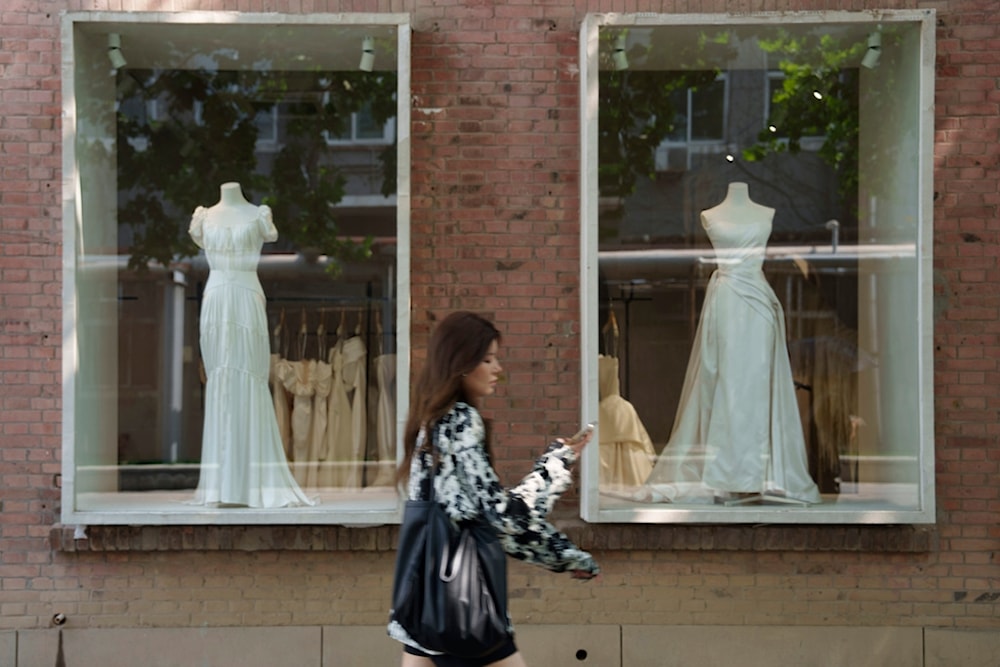China eases marriage rules to boost birthrate, cut costs
The number of marriages dropped by 20% last year, and 2024 marked the third straight year of overall population decline.
-

A Chinese woman walks past the wedding dresses on display at the 798 Art District in Beijing, China, on Saturday, July 6, 2024. (AP)
As part of a broader effort to counter declining birth and marriage rates, China has unveiled new measures aimed at reducing bureaucratic and financial barriers for couples looking to marry. The reform, announced Saturday, allows couples to register their marriage in the place they currently live, according to state broadcaster CCTV.
Previously, couples were required to travel to the location listed in either the bride or groom's household registration, a system that often created logistical and financial challenges. For instance, a couple residing in Beijing but originally registered in different regions would have been unable to complete their marriage registration in the capital.
"This reform is aimed at addressing the needs of people who live or work away from their registered hometowns, particularly younger generations," state news agency Xinhua noted.
CCTV added that the policy is being implemented nationwide after earlier pilot programs received positive feedback: "To better respond to public expectations and based on the success of pilot projects, the registration of marriages in the whole country will be implemented."
Marriage Crisis
This policy shift comes as the country grapples with serious demographic concerns. The number of marriages dropped by 20% last year, and 2024 marked the third straight year of overall population decline. In China, having children outside of marriage remains socially discouraged and legally complicated, further compounding the crisis.
In addition to streamlining marriage procedures, officials are targeting traditional customs that pose financial burdens on families. The Ministry of Civil Affairs plans to address “certain harmful customs such as high ‘bride prices' and wasteful expenses for weddings,” CCTV reported.
Read more: Study suggests global population may be significantly undercounted
The "bride price," a traditional payment from the groom's family to the bride, is widely viewed as a gesture of respect and a contribution to the couple's new life. But in practice, it can impose significant financial stress, particularly on less wealthy families, and is seen as exacerbating social inequality.
Other barriers discouraging young Chinese from marriage and parenthood include the steep cost of housing and the financial pressures associated with raising children. For many, buying a home is considered a prerequisite to marriage. Additionally, the expenses tied to daycare and private education—often deemed essential for a child's future success—remain significant concerns.

 3 Min Read
3 Min Read








